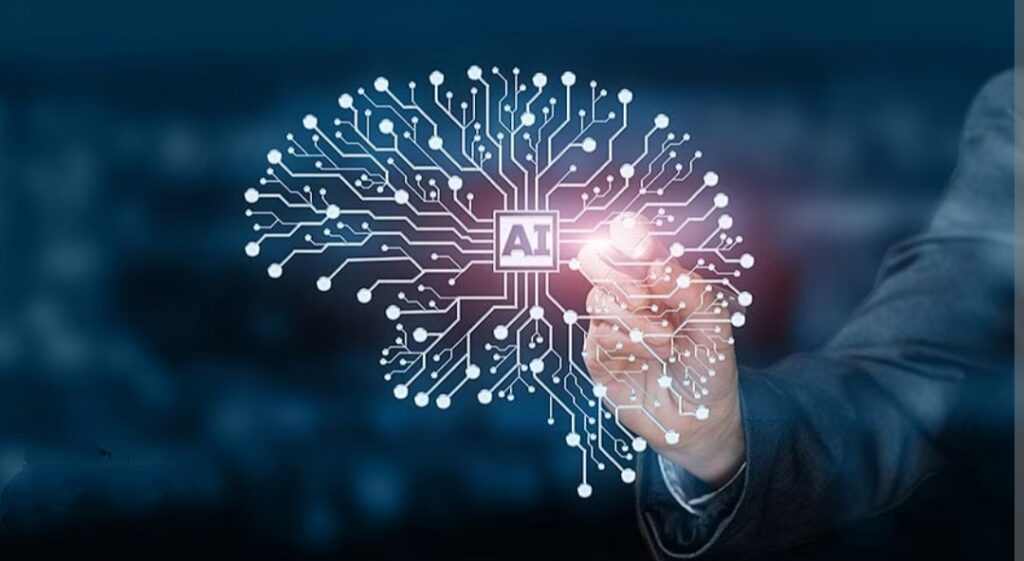Do you think Ai Will replace us?
I don’t think so!
Why? You know?
Here’s are those…
Embracing the Age of Artificial Intelligence
In an era defined by rapid technological evolution, one innovation stands out as a true game-changer: Artificial Intelligence (AI). From the buzz surrounding self-driving vehicles to the efficiency gains of virtual personal assistants, AI has seamlessly integrated into our daily lives, transforming industries and reshaping our perception of what’s possible.
Grasping the Essence of AI
At its core, AI seeks to replicate human intelligence within machines. It’s not merely about instructing computers to follow predetermined rules; it’s about empowering machines to learn from data, adapt to changing situations, and make decisions that mimic human thought processes. This capacity to sift through vast datasets and discern patterns has given rise to a multitude of applications.
The Spectacular Rise of AI
The journey of AI commenced decades ago, but its rapid ascent in recent years can be attributed to advances in computational power, the proliferation of big data, and groundbreaking algorithms. This convergence has allowed AI to infiltrate various sectors, ushering in changes that once belonged to the realm of science fiction.
AI in Healthcare
AI’s potential in healthcare is particularly promising. Machine learning algorithms can scrutinize medical records, images, and genetic data to aid in diagnoses, predict disease outcomes, and even propose personalized treatment strategies. In this arena, AI isn’t just augmenting precision; it’s saving lives.
AI in Finance
The financial sector has also warmly embraced AI. Algorithmic trading systems make split-second decisions, deftly managing portfolios with a precision previously considered unattainable. AI-powered chatbots handle customer support, while fraud detection algorithms tirelessly monitor transactions, fortifying our financial systems.
AI in Education
AI is revolutionizing education as well. Intelligent tutoring systems tailor learning experiences, adjusting to individual students’ paces and aptitudes. Chatbots and virtual assistants handle administrative tasks, allowing educators to devote more time to teaching.
AI in Transportation
In the transportation sector, autonomous vehicles are redefining mobility. Self-driving cars promise safer and more efficient travel, while smart traffic management systems optimize traffic flow. The AI revolution here holds the potential to reduce accidents and alleviate traffic congestion.
The Promises of AI
The potential of AI is boundless. It has the power to revolutionize industries, boost efficiency, and elevate our overall quality of life. Here are some key aspects of this potential:
Automation
AI can automate repetitive and labor-intensive tasks, liberating human workers to focus on more creative and intricate endeavors. This holds the potential to elevate productivity across numerous sectors.
Decision Support
Machine learning algorithms excel at processing vast datasets, offering insights and aiding decision-making. Whether in healthcare, finance, or marketing, AI-driven recommendations can lead to more informed choices.
Personalization
AI has the capacity to craft highly personalized experiences. From product recommendations on e-commerce platforms to content curation on social media, AI tailors experiences to individual preferences, increasing user engagement.
Fostering Innovation
AI is a hotbed for innovation. It inspires scientists, engineers, and entrepreneurs to explore new horizons, conceiving solutions to previously insurmountable challenges.
The Challenges Ahead
However, the rapid proliferation of AI also raises substantial challenges and concerns that necessitate careful consideration:
Ethical Quandaries
As AI becomes more autonomous and integrated into our lives, ethical questions arise. Who bears responsibility when AI makes a detrimental decision? How can we ensure that AI’s choices align with human values?
Job Displacement
While AI can create new jobs, it also has the potential to displace existing ones, especially those involving routine tasks. Preparing the workforce for these changes is a pressing challenge.
Bias and Fairness
AI systems can inadvertently inherit biases from their training data, resulting in unfair or discriminatory outcomes. Addressing bias in AI algorithms is paramount for equitable decision-making.
Privacy and Security
The vast amount of data necessary for AI training raises concerns about privacy and data security. Striking the right balance between data access and protection is an ongoing dilemma.
Responsible AI Development
To harness the power of AI while mitigating its risks, we must prioritize the responsible development of AI. This entails transparency in algorithms, rigorous bias testing, and ethical considerations in AI design.
The Future of AI
Looking ahead, AI will continue to evolve and impact every facet of our lives. As it matures, we can anticipate even more remarkable applications, from quantum AI to AI-driven scientific discoveries.
In Conclusion
AI is more than mere technology; it represents a transformative force that is reshaping our world. While it harbors immense promise, we must navigate its challenges with prudence and responsibility. The future of AI is exhilarating, and our journey into this new era demands that we embrace innovation while upholding our values. As we stand on the cusp of the AI revolution, let’s ensure that it benefits all of humanity, guiding us toward a brighter and more intelligent future.
